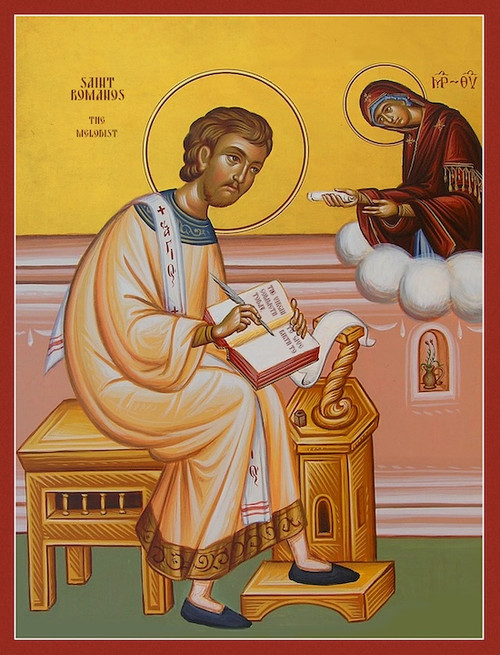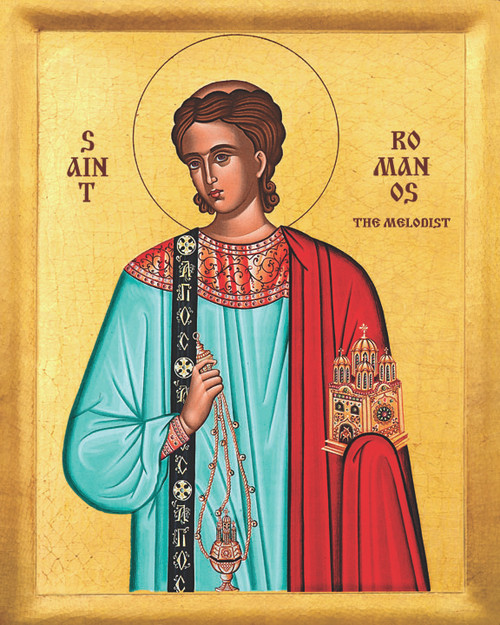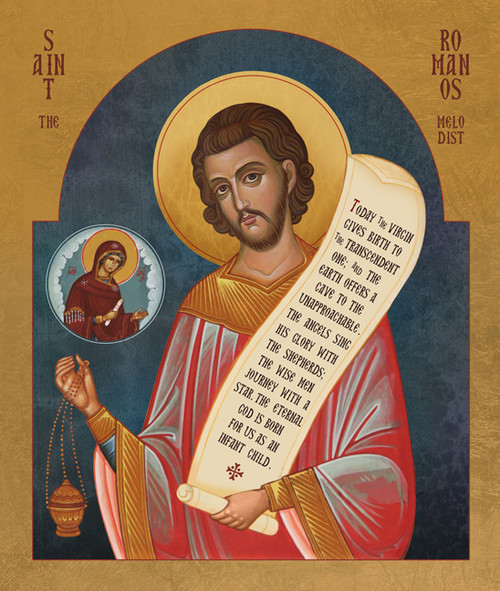St. Romanos the Melodist (+6th C.)
Commemorated October 1 (with the feast of the Protection of the Mother of God)
(Alternate spellings: Roman and Romanus)
St. Romanos, a Greek hymn-writer called "the Pindar of rhythmic poetry," was born in Emesa (Hems) in Syria in the latter part of the fifth century. St. Romanos was baptized as a young child and developed a great love for the house of God. After moving to Beirut, he was ordained to the diaconate and served at the Church of the Resurrection. During the reign of Emperor Anastasius I (491-518), St. Romanos moved to Constantinople where he led an ascetic life of prayer and fasting. In humility, he was painfully aware of his lack of of musical and theological training and longed for a melodious voice worthy of leading the faithful in praising God.
The day before the Feast of Our Lord's Nativity, St. Romanos was assigned to lead the singing (and preparing the text of the hymns) at the All-Night Vigil. Alone in the Blachermae Church, he tearfully entreated the Mother of God to help him. Totally exhausted, he fell asleep. In answer to his prayer, the Mother of God appeared to him in a dream. She handed him a scroll and said to him gently, "Here, eat this." St. Romanos did so and awoke overcome with joy and the lingering presence of the Mother of God.
When it came time that night for him to sing, he stepped onto the ambo and began to sing: "Today the Virgin gives birth to Him Who is above all being . . ." The emperor, the patriarch, the clergy, and the entire congregation listened in wonder at the profound theology and the clear, sonorous voice which issued forth. They all joined in the refrain, "A new-born Babe, the pre-eternal God." Later, St. Romanos told the patriarch about his vision, and the singers who had made fun of him prostrated themselves in repentance and humbly asked the his forgiveness.
With the Nativity Kantakion (518), St. Romanos began a remarkable period of prolific creativity. He wrote as many as 1,000 kontakion celebrating feasts and saints throughout the liturgical year and more than 8,000 similar hymns. One scholar comments that St. Romanos' compositions successfully combined "the solemnity and dignity of the sermon with the delicacy and liveliness of lyric and dramatic poetry."







